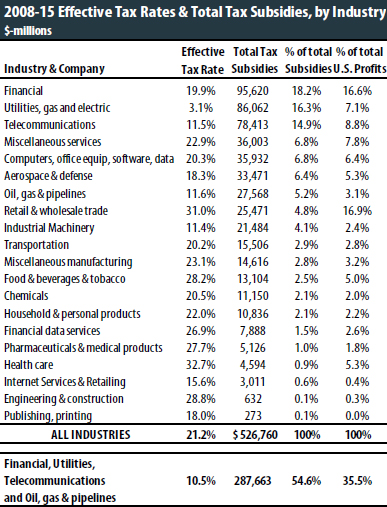hazlnut
Gold Member
- Sep 18, 2012
- 12,387
- 1,923
The 35 Percent Corporate Tax Myth
Corporate Tax Avoidance by Fortune 500 Companies, 2008 to 2015

I know, realizing you've been lied to by Fox News hosts you've trusted… it hurts.
Corporate Tax Avoidance by Fortune 500 Companies, 2008 to 2015
I know, realizing you've been lied to by Fox News hosts you've trusted… it hurts.
